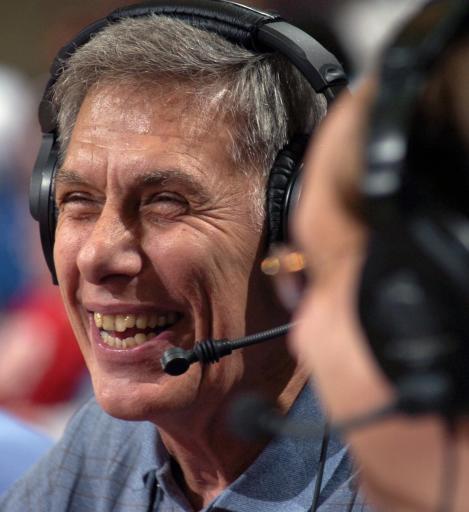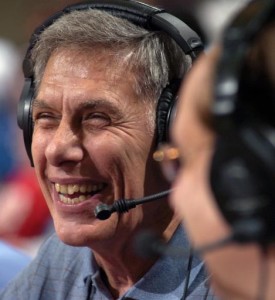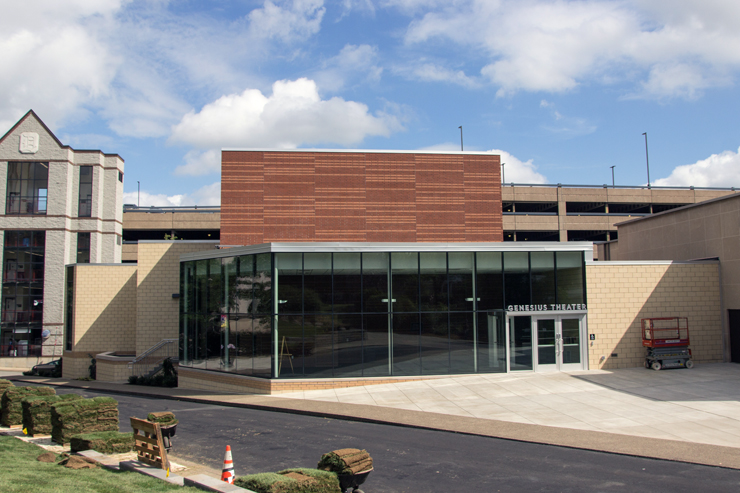

By Bridget Seelinger | The Duquesne Duke
Duquesne alum and Hall of Fame announcer Ray Goss has seen Duquesne basketball’s best and worst moments. To this day, Goss sits microphone in hand, calling each Dukes game on the radio.
His love for Duquesne basketball started back when he was a student on the Bluff in the 1950s. As an undergrad, he would call a variety of sports like football and baseball on the student-run radio station, WDUQ.
“Coming out of there as a student, even though we didn’t have many listeners and hardly any feedback, was a great training ground,” Goss said. “So I got into radio, and my first job was in Indiana, Pennsylvania, and fortunately they needed somebody doing sports here.”
Goss kept in touch with Duquesne during their dry spell in the 1960s. “[WDUQ] didn’t have an announcer because they were off the radio, so when they started winning again, they were looking for someone to take the job.” On St. Patrick’s Day of 1968, Goss announced his first game for the Dukes after the team earned a trip to the NIT.
“They hadn’t been on the radio all year …,” he said. “But I hustled it and sometimes that’s how it works out.”
Goss’ interest in broadcasting spans back to his childhood. When he hit high school, he realized the life of an athlete wasn’t for him. However, he could still enjoy sports as a broadcaster. He always loved the radio, so he decided to go to Duquesne and pursue a degree in radio TV journalism, which he achieved in 1968.
After almost 50 years of college basketball broadcasting experience, Goss was inducted into the Western Pennsylvania Broadcasting Hall of Fame. He is the second longest tenured play-by-play announcer in Pennsylvania college basketball history, right behind Dick Hammer from Lafayette College in Easton.
Hard enough as it is to believe, Goss didn’t always have that amazingly clear voice you hear over the air-waves. Goss said another one of the things he struggled with early on in his career was maintaining a clear dialogue while still communicating excitement for whatever was happening out on the court.
“Just through experience I learned to become more relaxed during the games. Trying to be objective. Yes I am still excited when Duquesne scores or wins or whatever,” Goss said. “But I try to stay in control. Now when I do games, talking for about three hours almost continuously, I still am able to talk normally and not feel like my voice is strained.”




